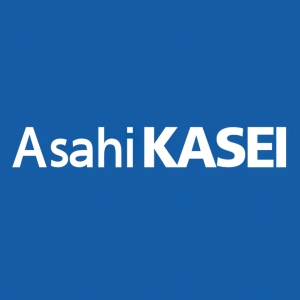Licensee of Asahi Kasei Technology Begins Commercial Production of High-Purity Carbonates Using CO2 as Main Feedstock in China
DÜSSELDORF,

Sailboat's new plant for high-purity EC and DMC using the Asahi Kasei process technology (Photo: Business Wire)
In the early 2000s, Asahi Kasei developed process technology to produce various chemical products using CO2 as a main raw material. The technology has been licensed to chemical companies globally, with the first licensee starting the production of polycarbonate using CO2 in 2002. Since then, Asahi Kasei has been expanding its expertise in the field of CO2-based production of resins and other chemicals, including carbonates.
Demand for lithium-ion batteries is expected to continue increasing due to the global shift to EVs in the automotive industry and greater use of electric power storage systems (ESS) in conjunction with growing use of renewable energy. Ethylene carbonate (EC) and dimethyl carbonate (DMC) are two essential materials for the production of lithium-ion battery electrolytes. In addition, reducing the carbon footprint of products (CFP) for materials and components is a major challenge for manufacturers worldwide.
In September 2021, Asahi Kasei and Chinese client Sailboat signed a license agreement for process technology to produce 38,000 tons of high-purity EC and 70,000 tons of high-purity DMC annually. The two parties jointly performed the design, construction, and commissioning of a production plant. Having started commercial operation in November 2024, the plant has the capacity to use 54,000 tons of CO2 per year as feedstock. With several licensees now adopting this process technology for the large-scale production of high-purity carbonates using CO2 as feedstock, the total amount of CO2 used as feedstock is approximately 300,000 tons annually, including the production of polycarbonate as well as carbonates.
Xu Jiale, Project Director of Sailboat for carbonates (EC/DMC), comments: “By producing high-purity EC and DMC for lithium-ion battery electrolytes, Sailboat will further expand the value chain for this industry and contribute to a sustainable society.”
Hiroyoshi Matsuyama, Senior Executive Officer of Asahi Kasei and President of its Environmental Solutions SBU, adds: “By licensing this technology for a more sustainable production of these important materials, we will continue to focus on the practical application of our expertise in the field of CO2 chemistry and contribute to a sustainable society by providing solutions to the world's environmental challenges.”
About Jiangsu Sailboat Petrochemical (Sailboat)
Sailboat was founded in 2010 as a wholly-owned subsidiary of Sheng Hong Holding Group to produce high-end petrochemicals. Founded in 1992, Sheng Hong Holding Group is an international high-tech industrial group with integrated development of the whole industrial chain of petrochemical refining, new energy, new materials, and high-end textiles.
About Asahi Kasei
The Asahi Kasei Group contributes to life and living for people around the world. Since its foundation in 1922 with ammonia and cellulose fiber businesses, Asahi Kasei has consistently grown through the proactive transformation of its business portfolio to meet the evolving needs of every age. With more than 49,000 employees worldwide, the company contributes to a sustainable society by providing solutions to the world's challenges through its three business sectors of Material, Homes, and Health Care. For more information, visit www.asahi-kasei.com.
Asahi Kasei is also dedicated to sustainability initiatives and is contributing to reaching a carbon neutral society by 2050. To learn more, visit https://www.asahi-kasei.com/sustainability/.
View source version on businesswire.com: https://www.businesswire.com/news/home/20241205198688/en/
Europe Contact:
Asahi Kasei Europe GmbH
Sebastian Schmidt
sebastian.schmidt@asahi-kasei.eu
North America Contact:
Asahi Kasei America Inc.
Christian OKeefe
christian.okeefe@ak-america.com
Source: Asahi Kasei






